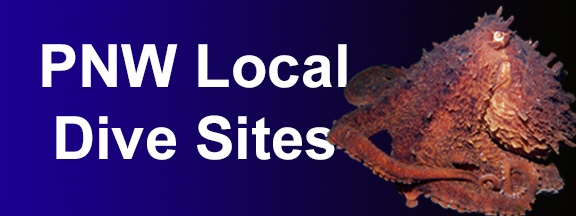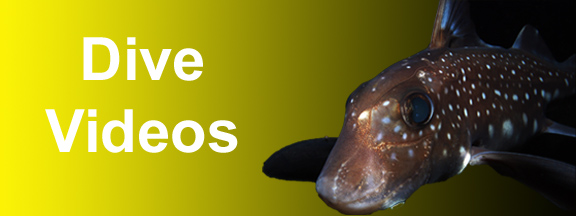

Spearfishing
Spearfishing
I have been an avid fisherman since I was a 10 years old. I thought I would be a big spear fisherman when I initially got into diving. I quickly changed my mind after studying and interacting with our local marine life. There is no way I could spear a rockfish, cabezon, greenling, or perch. I still “hook and line” fish on occasion, but only target hatchery-raised salmon and steelhead.
My plea is simple: Please do not take resident reef fish from our local waters. I have been to parts of the world where everyone was only “taking their share” and wiped out the majority of the fish stocks. One trip to the marine sanctuary at Edmonds Underwater Park is all it takes to realize we put enormous fishing pressure on Puget Sound and surrounding areas. Many rockfish are territorial species that live their entire life in one small area. They may never recover once fished out of an area. If you absolutely insist on spear fishing, I desperately encourage you to:
·Only take what you can eat that night. Rockfish and lingcod are far better when fresh. Please do not fill your boat simply because you can or are “within you limit”, especially in the Cape Flattery area.
·Never shoot an orange or red colored rockfish. Two orange colored species in our waters are protected or endangered (yelloweye and canary rockfish). The orange colored rosy rockfish is an exceedingly rare find and should be left for other divers to appreciate.
·Leave the bigger fish alone when hunting. Big fish tend to produce far more offspring than small fish. Some rockfish species don’t reproduce until they reach an age of 14 years.
·Don’t shoot cabezon. We see few of these giant sculpins outside of Edmonds Underwater Park. Please let them recover. The same goes for China and tiger rockfish in the San Juan Islands and Cape Flattery area and black rockfish (which just recently appear to be on the rebound) anywhere outside of the Cape Flattery area.
·Wolfeel and octopus are icons in our area that are idolized by almost all northwest divers and should be left alone. I would actually fear for a diver’s well being if he or she speared either of these animals and dragged it ashore among a group of northwest divers.
Better yet, take up underwater photography as I did. I find it much more challenging and rewarding - and there are no limits, licenses, or seasons to worry about.
My plea is simple: Please do not take resident reef fish from our local waters. I have been to parts of the world where everyone was only “taking their share” and wiped out the majority of the fish stocks. One trip to the marine sanctuary at Edmonds Underwater Park is all it takes to realize we put enormous fishing pressure on Puget Sound and surrounding areas. Many rockfish are territorial species that live their entire life in one small area. They may never recover once fished out of an area. If you absolutely insist on spear fishing, I desperately encourage you to:
·Only take what you can eat that night. Rockfish and lingcod are far better when fresh. Please do not fill your boat simply because you can or are “within you limit”, especially in the Cape Flattery area.
·Never shoot an orange or red colored rockfish. Two orange colored species in our waters are protected or endangered (yelloweye and canary rockfish). The orange colored rosy rockfish is an exceedingly rare find and should be left for other divers to appreciate.
·Leave the bigger fish alone when hunting. Big fish tend to produce far more offspring than small fish. Some rockfish species don’t reproduce until they reach an age of 14 years.
·Don’t shoot cabezon. We see few of these giant sculpins outside of Edmonds Underwater Park. Please let them recover. The same goes for China and tiger rockfish in the San Juan Islands and Cape Flattery area and black rockfish (which just recently appear to be on the rebound) anywhere outside of the Cape Flattery area.
·Wolfeel and octopus are icons in our area that are idolized by almost all northwest divers and should be left alone. I would actually fear for a diver’s well being if he or she speared either of these animals and dragged it ashore among a group of northwest divers.
Better yet, take up underwater photography as I did. I find it much more challenging and rewarding - and there are no limits, licenses, or seasons to worry about.














